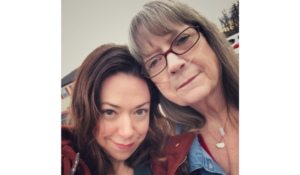“You don’t know what you don’t know”
In my parent group for those whose children think differently, a favorite phrase is “you don’t know what you don’t know.” This phrase has come to reassure me as I look back over the years. I carried guilt that I could never do enough and worried that I was messing up the children I was privileged to parent.
When I heard the words “attachment insecurity” attached to one of my kids–who was already a tween at the time–I was devastated. I had carried this child literally on my body for nearly two years, hoping we would form a bond. I had quit my job to be with my children more. We had rocked them to sleep and read them books and told them how much we loved them. As we looked into their eyes, we told them over and over the stories of how they came to be in our family.
About that last part…
A big part of our decision on how we would add children to our family, including whether we would consider adoption at all, had to do with our understanding of attachment. In fact, we ruled out international adoption mostly out of fear of attachment issues. Instead, we decided on local, domestic infant adoption.
We wanted a young child because we felt this would give all of us the best chance at bonding and growing together. Yet even though it felt like we were the most trained parents ever (adoption and foster process will do that to you!), we never really understood the very real trauma a child goes through when separated from the parent they bonded to in utero. I’ll say it again:
“You don’t know what you don’t know.”
Looking back now on the last three years since I heard those two words, “attachment insecurity,” I now understand better what happened. I learned that our issues were less about my parenting style and more about what I knew. After all, you can’t do what you don’t know or understand.
Now we know
The day after the “attachment insecurity” revelation at school, a pivotal day in the life of our family, I started researching. I was amazed at what I found, what hadn’t been spoken, and what we needed to do moving forward. We hoped to give our child what he needed not just to attach but also to thrive. At this point, our concerns ran very deep that he might not have a long and healthy life at all. His behaviors and our inability to admit and grasp what might be going on seemed beyond us. It took a long time to reconcile myself to the idea that I had done what I knew. It just wasn’t enough.
Yet when it came to him and his sister, our new knowledge helped certain things begin to make a whole lot more sense. With time, lots of research, and a convicting read of The Primal Wound by Nancy Verrier, we found a path forward in helping our child. In my next post, I hope to outline the steps we took to help our family finally bond in a way that makes family life more tolerable…even…dare I say it…enjoyable.



